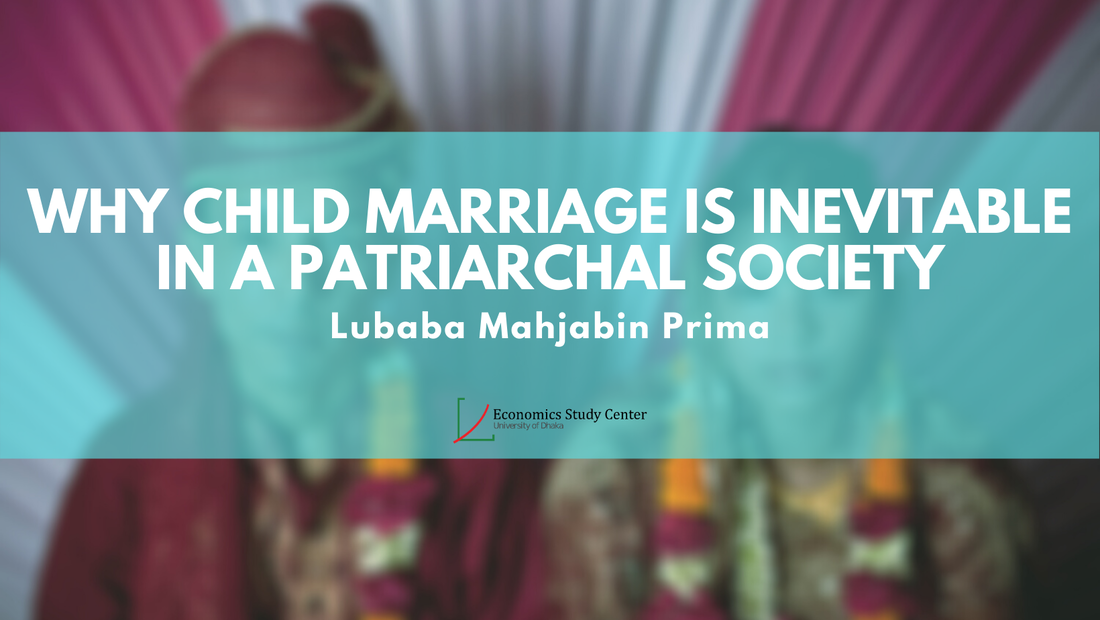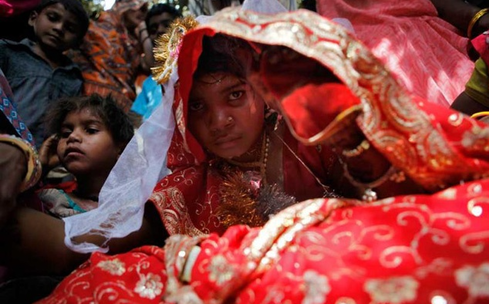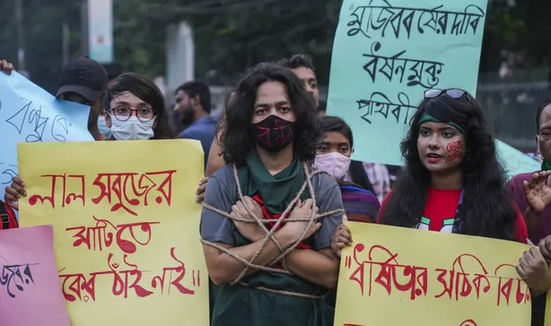ECONOMICS STUDY CENTER, UNIVERSITY OF DHAKA
|
Lubaba Mahjabin Prima The case of Sara, the braveheart who fought against her family in order to end her forced child marriage, is inspiring to girls all over the country. Her family forced her to marry someone much older than her. But with the help of her friends and some activists, she was able to end that marriage. There is no doubt that this case has to be thoroughly investigated and the family should be brought under law. But one excuse given by her family sheds light on an otherwise ignored dynamic of child marriage. They said they were receiving multiple threats and hence were scared for her safety. While this might have been their way to escape legal proceedings, this case presents a critical puzzle, a scenario more common in rural areas. In a society where women are unsafe and feel scared to get out of their homes, are child and forced marriages the inevitable result? Patriarchy and Marriage Patriarchal society assigns immense value to a woman's "chastity and purity". A woman's entire merit and value, be it to her family or the society, are judged by this idea about purity. Moreover, a family is considered to be unworthy of respect and treated as outcasts when their daughter defies such conditioning. Hence, families get obsessed with making sure that their girls are married off at the earliest, right in their adolescence. Moreover, conservative societies believe behaviours they deem immoral can be reduced by early marriage. In a survey conducted by UNICEF in Yemen, it's seen that liberal and open ideas have triggered families into marrying their children early. A man from Zabid commented that child marriage is the solution to prevent deviation or notoriety, “I think the best is to get girls married as early as possible to combat the openness brought in by TV serials”. However, boys are not made to marry until they are able to earn their own livelihoods and hence young girls mainly face the brunt of such parochial mindset. Child marriages, early marriages and complications of reproductive health resulting from them all arise due to this patriarchal view. Rape and Marriage It is no new news that the situation for women is horrible in Bangladesh. Some 1,093 children and women have been raped from January to October of 2020 in the country, according to the Bangladesh Mahila Parishad (BMP). Moreover, the details of these gruesome events are widely known to most people. All this makes people realize that their girls are in an unsafe environment. The partriarchal society, being extremely hostile to women, treats rape victims in a detrimental way. Unmarried girls who get raped are deemed to be "unworthy" of marriage. In a society which considers marriage and child rearing to be the ultimate goals of a woman's life, this is considered to be a penalty both on the victim and the family. Hence, families want to make sure their girls are protected, not solely because of their safety, but also because of the difficulty the families might face while trying to marry them off. Hence to avoid any situation where the girl is left unmarried, people want their daughters married. What they fail to acknowledge is that these child brides are often raped by their own husbands. According to Bangladesh Bureau of Statistics, 45.5% of the sexual violence faced by women happens at their husbands' houses. Hence the biggest irony is that families want to prevent rape but could potentially be sending their girls to fall prey to the same crime. Moreover, in a lot of cases, rape victims are blamed for getting raped. Many people consider that rape to be some form of "consensual activity" where women entice men to "rape" them . In their opinion, women who get raped are not chaste and should be treated as outcasts. A documentary made by Indian news outlet, The Quint revealed that the majority of adults and children in Haryana, India (a province particularly known to be hostile towards women) believes girls are responsible for rapes too. While such ugly beliefs are disgusting, many people who think like this have daughters and families themselves. They consider that in order to prevent such situations, the best course of action is child marriage. Preventing child marriage In a world where a woman is judged primarily on the basis of her sexual experiences and where rape victims are treated as culprits, child marriage is an inevitable result. Any effort to reduce child marriage will fail to eradicate this social ill because families will always try to find some loophole of the law. Influencing legal documents or manipulating local administration are some of the numerous ways in which families keep marrying underaged girls off. This problem has to be addressed at its root. Families need to realize that the path to child marriage is dangerous, and not only does it destroy a girl's social and economic mobility, it also risks her health and life. It is natural on their part to get anxious given the law and order situation. However, they need to attempt to change that situation by being more vocal about rape and understanding the ideas of consent. The state needs to address the issue of women's safety. Lawlessness and disorder is the ideal place for normalising child marriage, the instances of which can be seen throughout history. Other government programmes to fight child marriage will fail if the issue of women's safety is not addressed. Society needs to stop judging women through their sexuality and start viewing them as human beings with ambitions, dreams and individual priorities. Unless the shackles of patriarchy are broken and rape culture is crushed down, child marriage won't stop. If parents don't feel safe sending their girls to schools, they will inevitably send them to in-laws'.
0 Comments
Leave a Reply. |
Send your articles to: |




